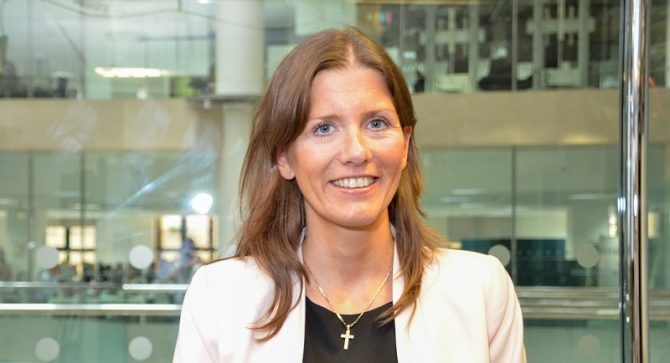Bids for the UK’s new £110 million Turing Scheme will open to universities, FE providers and schools next month.
The Department for Education has today announced the “next phase” of the international student exchange programme by launching a website which outlines its funding rates and eligibility criteria ahead of a six-week bidding process in March.
The scheme, named after scientist Alan Turing, was unveiled in December as the replacement to the UK’s participation in Erasmus+ following Brexit.
It will allow students to study and work abroad from September 2021, and will target those from disadvantaged backgrounds.
The DfE said bids for a slice of the funding will open next month and it plans to issue funding decisions in July.
FE learners, including apprentices, can take part in the scheme which will see placements range from between two weeks and 12 months. Placements can start from just five days for learners with special educational needs and/or disabilities.
Funding for the scheme will go towards delivering the placements and exchanges, including grants to help cover travel expenses and costs of living and administrative funding for delivering the projects.
The rates provided will be “broadly in line” with what was on offer under Erasmus+, according to the DfE.
Under each project to cover administrative costs, £315 will be provided per participant for the first 100 participants. From the 101st participant onwards, £180 will be provided per participant.
An amount of funding will then be provided to go towards the direct costs of travel for a placement, which will depend on distance. Grants for this will range from £20 to £1,360.
For costs of living, there will be three rates available: Group 1 (high cost of living), Group 2 (medium cost of living), Group 3 (lower cost of living).
In terms of learners on an FE and vocational education placement, they will receive:
To Group 1 destinations: £109 per day for the first 14 days, £76 per day after the 14th day
To Group 2 destinations: £94 per day for the first 14 days, £66 per day after the 14th day
To Group 3 destinations: £80 per day for the first 14 days, £56 per day after the 14th day
For FE students from disadvantaged backgrounds, including those in care, on universal credit, or in receipt of free school meals, they will receive “actual costs for additional travel expenses, including costs of visas, passports, and health insurance”.
Students with SEND will be funded “up to 100 per cent of actual costs for support directly related to their additional needs”.
‘We will open up the globe to our young people’

Universities minister Michelle Donelan said: “We are committed to making sure our students, particularly those from disadvantaged backgrounds, can benefit from studying and working abroad. Working with the British Council, we will open up the globe to our young people, and I look forward to seeing the exciting and enriching opportunities the Turing scheme will bring.”
David Hughes, chief executive of the Association of Colleges, added: “The Turing scheme opens the world’s door to work and study placements for college students. This is an important part of ‘levelling up’ the life chances for all of our young people – whatever their background.
“International mobility motivates and inspires young people to understand their place in the world, develop their life skills and build confidence and ambition. I strongly encourage colleges new to international exchanges to consider participating in Turing and hope that those who have been involved before can use this to extend opportunities for students.”









Your thoughts